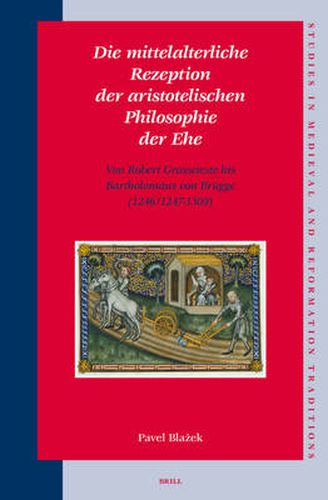Readings Newsletter
Become a Readings Member to make your shopping experience even easier.
Sign in or sign up for free!
You’re not far away from qualifying for FREE standard shipping within Australia
You’ve qualified for FREE standard shipping within Australia
The cart is loading…






This study considers the medieval reception of Aristotle’s philosophy of marriage, which became known in the Medieval West through the thirteenth century rediscovery of the Nicomachean Ethics, the Politics and the pseudo-Aristotelian Economics, then considered a genuine work of the Stagirite. The author shows in seven case studies how medieval readers interpreted the ideas on marriage contained in these Aristotelian texts, and how they used them to construct their own, mostly theological or philosophical, discourses on marriage. At the core stands a hitherto largely neglected, unedited commentary on the pseudo-Aristotelian Economics of Bartholomew of Bruges (1309). This study is an important contribution to research on the medieval reception of Aristotle, as well as on the history of marriage.
$9.00 standard shipping within Australia
FREE standard shipping within Australia for orders over $100.00
Express & International shipping calculated at checkout
This study considers the medieval reception of Aristotle’s philosophy of marriage, which became known in the Medieval West through the thirteenth century rediscovery of the Nicomachean Ethics, the Politics and the pseudo-Aristotelian Economics, then considered a genuine work of the Stagirite. The author shows in seven case studies how medieval readers interpreted the ideas on marriage contained in these Aristotelian texts, and how they used them to construct their own, mostly theological or philosophical, discourses on marriage. At the core stands a hitherto largely neglected, unedited commentary on the pseudo-Aristotelian Economics of Bartholomew of Bruges (1309). This study is an important contribution to research on the medieval reception of Aristotle, as well as on the history of marriage.